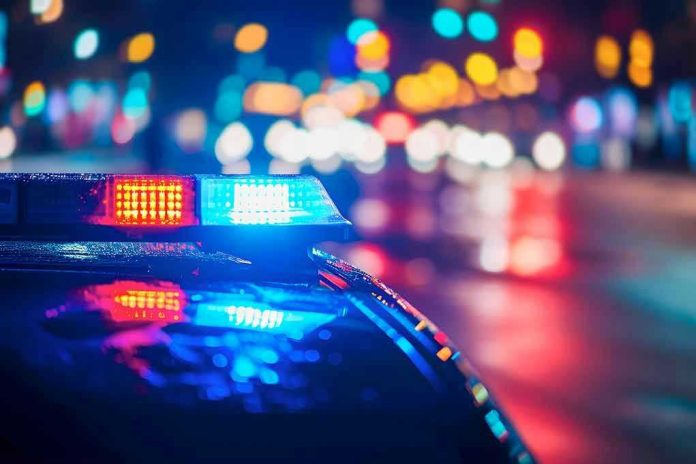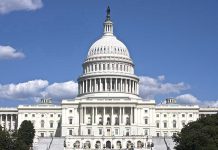
Two sisters turned a North Carolina highway into a deadly racetrack, and now three high school athletes are dead, their families shattered, and a community demanding answers about how such reckless behavior could steal promising young lives in an instant.
Story Snapshot
- Two sisters face criminal charges after allegedly engaging in illegal street racing that resulted in a fatal collision killing three students
- The crash occurred amid North Carolina’s aggressive crackdown on street racing, with new laws targeting participants, organizers, and even spectators
- Defendants could face escalated charges beyond misdemeanors due to the fatalities, potentially including felony offenses with lengthy prison sentences
- The incident highlights a growing epidemic of street racing across the state, prompting stricter enforcement and legislative action to protect public safety
The Fatal Race That Changed Everything
The sisters allegedly transformed a public roadway into their personal drag strip, racing at high speeds with complete disregard for other motorists. During their reckless competition, their vehicles collided with another car carrying three students. The impact was catastrophic. All three young people died at the scene, their futures erased in seconds because two drivers wanted the thrill of speed. Law enforcement arrived to find a scene of devastation, launching an immediate investigation that led to both sisters’ arrests. The charges they now face represent just the beginning of legal consequences that could follow them for the rest of their lives.
North Carolina law treats street racing as a Class 1 misdemeanor under normal circumstances, but when people die, prosecutors have options. The sisters could face charges ranging from the street racing statute itself to far more serious felony offenses. Second-degree murder charges have been successfully prosecuted in previous North Carolina cases where illegal racing resulted in deaths. The legal system recognizes that choosing to race on public roads demonstrates a wanton disregard for human life, and when that choice kills someone, the consequences must reflect the gravity of the crime.
North Carolina’s War on Street Racing
This tragedy arrived at a moment when North Carolina lawmakers and law enforcement have declared open war on street racing. The state recently passed comprehensive legislation targeting not just the racers themselves but anyone who facilitates these dangerous events. New “street takeover” laws enacted in 2023 and 2024 make it illegal to organize, promote, or even spectate at illegal racing events. Organizers can face felony charges, while spectators risk misdemeanor prosecution simply for watching. The message is clear: North Carolina will not tolerate this behavior in any form.
The penalties extend beyond criminal charges. Convicted street racers face mandatory license revocation for at least three years. Their vehicles can be seized and impounded, with owners forced to pay substantial storage fees before reclaiming their property. Insurance premiums skyrocket, assuming companies even agree to provide coverage. Civil lawsuits from victims’ families can result in financial ruin lasting decades. The legal and financial devastation serves a purpose: making street racing so costly that potential racers think twice before turning the key.
Three Families Forever Broken
Behind the legal proceedings and policy discussions are three families experiencing unimaginable grief. These weren’t nameless statistics. They were students with hopes, dreams, and people who loved them. They were athletes who worked hard, studied diligently, and looked forward to their futures. Now their families plan funerals instead of graduations, mourn lost potential instead of celebrating achievements, and face holidays and milestones forever marked by absence. The sisters’ choice to race didn’t just end three lives; it created ripples of suffering that will persist for generations.
The community surrounding these victims has rallied in grief and anger. Local schools held vigils, teammates wore memorial patches, and classmates struggled to process the senselessness of it all. Parents throughout the area felt a chill recognizing their own children could have been in that vehicle. This wasn’t a tragic accident caused by weather or mechanical failure. This was preventable violence inflicted by drivers who valued their entertainment over human life. That reality makes the loss even harder to bear.
The Price of Thrills
Street racing appeals to young drivers seeking adrenaline, social media glory, and peer validation. What they fail to grasp until too late is that public roads aren’t racetracks. There are no safety barriers, emergency crews standing by, or controlled environments. There are families driving home from dinner, students heading to practice, and innocent people who never consented to participate in someone else’s dangerous game. When street racers lose control, they don’t just risk their own lives; they weaponize thousands of pounds of metal traveling at excessive speeds.
The sisters now face the consequences of treating public safety as negotiable. If convicted, they could spend years in prison watching life pass by through bars, knowing three people died because they wanted a few minutes of excitement. Their criminal records will follow them permanently, affecting employment, housing, and every future opportunity. The victims’ families may pursue civil litigation, ensuring financial penalties compound criminal punishment. Most importantly, they must live with the knowledge that their actions killed three people. No sentence a judge hands down will match the weight of that burden.
Preventing the Next Tragedy
This case represents more than justice for three victims; it serves as a deterrent message to anyone tempted by street racing. North Carolina has demonstrated through legislation and prosecution that it will pursue maximum penalties when racers kill. Other states watch these proceedings, considering whether to adopt similar aggressive approaches. Law enforcement agencies have increased patrols in areas known for racing activity, deployed technology to catch offenders, and partnered with communities to report illegal events before tragedies occur.
Yet prevention requires more than law enforcement. Parents must have frank conversations with young drivers about why racing isn’t worth the risk. Schools need to emphasize that social media fame fades, but criminal records and death are permanent. Communities should provide legal alternatives for car enthusiasts, like sanctioned track days where drivers can test their skills safely. The goal isn’t eliminating automotive passion; it’s channeling that energy away from public roads where innocent people become collateral damage.
Sources:
Racing Offenses and Penalties in North Carolina – Browning Long Law
NC Street Racing Legal Costs – Dummit Fradin
Street Racing Charges in Charlotte – Charlotte Criminal Lawyer Blog
North Carolina General Statutes §20-141.3
2 Fast Too Serious: Street Racing in North Carolina – Carolina Attorneys
North Carolina’s New Street Takeover Statute – Jetton Meredith Law
Recent Legislation Outlaws Street Takeovers – NC Criminal Law







